How Industrial Soundproofing Benefits the Metallurgical Industry: Reducing Noise Pollution
In a rapidly growing metallurgical industry, excessive noise from machinery and equipment poses a significant problem. Industrial soundproofing provides an essential solution. While metallurgical production is crucial, the noise pollution it generates can have detrimental consequences. Industrial soundproofing, therefore, offers effective solutions.
Contact Our Industrial Soundproofing ExpertsIndustrial Soundproofing in the Metallurgical Sector: Why Is It Crucial?
While the production process is essential for creating high-quality metal products, the noise pollution it generates can have detrimental effects on both workers and the environment.
This is where industrial noise control comes into play to address this pressing issue. By implementing effective soundproofing measures, the metallurgical industry can significantly reduce noise levels, creating a safer and more comfortable working environment for employees while minimizing the impact on surrounding communities.
On this page, we will explore the importance of industrial soundproofing in the metallurgical industry, the benefits it offers, and the various methods and materials used to reduce noise. Let's discover together how industrial soundproofing plays a crucial role in reducing noise pollution in the metallurgical industry.
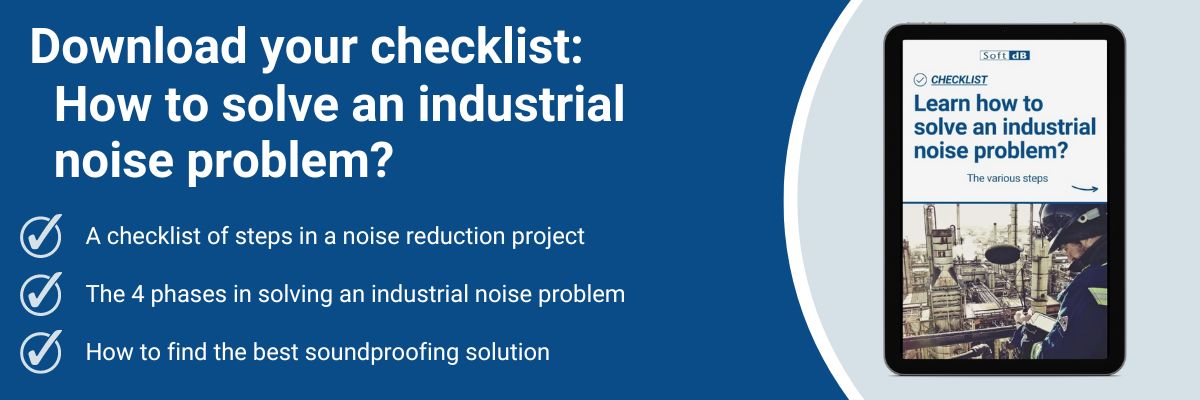
The Effects of Noise Pollution on Workers and the Environment
Noise pollution generated by the metallurgical industry can have detrimental consequences for the health and well-being of workers. High noise levels can lead to permanent hearing loss, sleep disturbances, increased stress and anxiety, as well as concentration problems. Furthermore, workers exposed to excessive noise may also experience communication issues, which can result in errors and accidents in the workplace.
In addition to its effects on workers, noise pollution can also impact the environment. Excessive noise can disrupt wildlife and cause disturbances for nearby communities. It is, therefore, essential to take measures to reduce noise pollution in the metallurgical industry.
The Importance of Reducing Noise Pollution in the Metallurgical Industry
Reducing noise pollution in the metallurgical industry holds paramount importance for several reasons. Firstly, it contributes to the health and safety of workers. By lowering noise levels in the workplace, it is possible to prevent health issues associated with noise exposure, such as hearing loss and stress-related problems. Furthermore, noise reduction can enhance productivity and work quality, as workers can concentrate more effectively without constant disruption from surrounding noise.
Additionally, reducing noise pollution creates a more pleasant environment for workers, contributing to their satisfaction and overall well-being. Finally, reducing noise pollution in the metallurgical industry is also beneficial for the environment and nearby communities, as it minimizes disturbances and preserves the tranquility of residential areas.
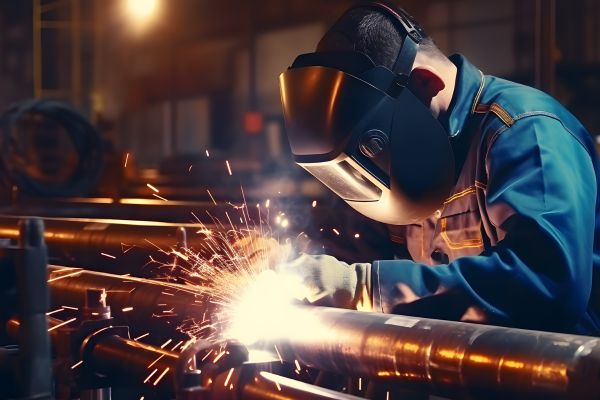
Common Sources of Noise in the Metallurgical Industry
In the metallurgical industry, there are several sources of noise that contribute to noise pollution.
Noisy Machinery and Equipment
One of the primary sources of noise in the metallurgical industry lies in the machinery and equipment used during the production processes. Powerful hydraulic/mechanical presses, saws, conveyors, and pumps play a significant role in production, but they often generate high noise levels. These machines can produce impressive decibels, creating a demanding sound environment for both workers and residents in the surrounding areas.
Cutting, Welding, and Grinding Operations
In addition to production machinery, cutting, welding, and grinding operations are also notable sources of noise in the metallurgical industry. Torch cutting, welders, and grinders produce piercing and continuous noise. Noise levels can vary depending on the techniques and equipment used, but it is common to observe significant sound levels within these environments.
Vibrations Contribute to Ambient Noise
Another often overlooked aspect of noise in the metallurgical industry is the impact of machine and equipment vibrations on ambient noise. Vibrations can propagate through structures, walls, and the ground, thereby increasing the overall noise level. This can have a cumulative effect, creating a stressful sound environment for both workers and nearby residents.
Understanding Industrial Soundproofing Solutions for the Metallurgical Industry
Industrial soundproofing is an effective approach to reduce noise pollution in the metallurgical industry. There are several techniques and materials used in the field of industrial soundproofing, each with its own advantages and limitations.
Among the commonly used solutions are the installation of acoustic blankets, sound-absorbing panels, and mufflers for ventilation systems.
These solutions can be tailored to the specific needs of each metallurgical facility, based on identified sources of noise, operational constraints, and environmental considerations. It is essential to work with professionals in industrial soundproofing to design and implement effective solutions that meet the noise reduction requirements of the metallurgical industry.
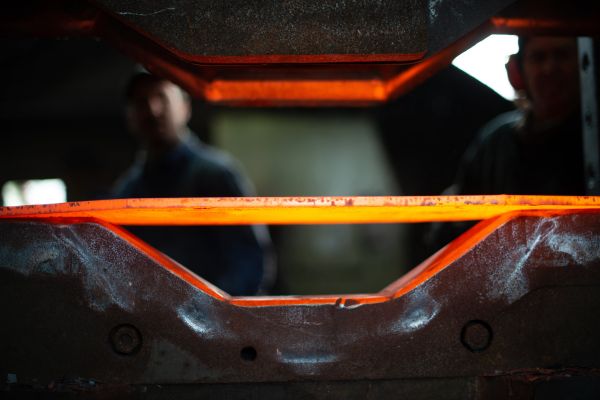
The Benefits of Noise Control Measures in Metallurgy
Implementing noise control measures in the metallurgical industry offers numerous advantages. Firstly, it creates a safer and more comfortable working environment for employees. By reducing noise levels, it helps prevent health issues related to noise exposure and reduces the likelihood of accidents and errors caused by communication problems.
Moreover, noise reduction can enhance productivity and work quality by enabling workers to focus more effectively on their tasks. In addition to the benefits for workers, noise reduction also contributes to environmental preservation and the tranquility of nearby communities. It minimizes disturbances and helps strike a balance between industrial activity and the well-being of people living in proximity.
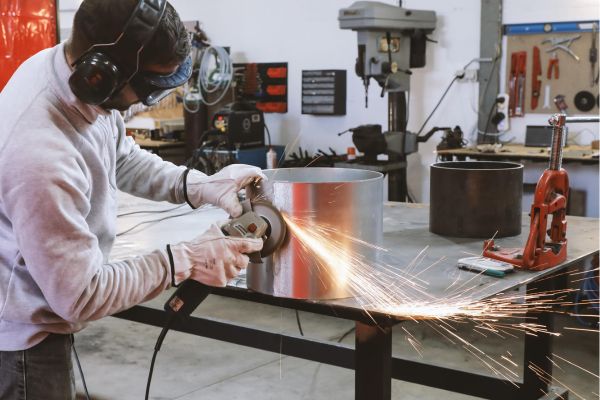
Regulations for Noise Control in the Metallurgical Industry
To ensure effective reduction of noise pollution in the metallurgical industry, specific regulations are in place.
These regulations define acceptable noise limits for metallurgical facilities and establish noise control requirements. Companies must comply with these regulations to ensure the health and safety of workers, as well as to minimize negative impacts on the environment and nearby communities. It is essential to be aware of and adhere to these regulations to ensure effective noise pollution reduction in the metallurgical industry.
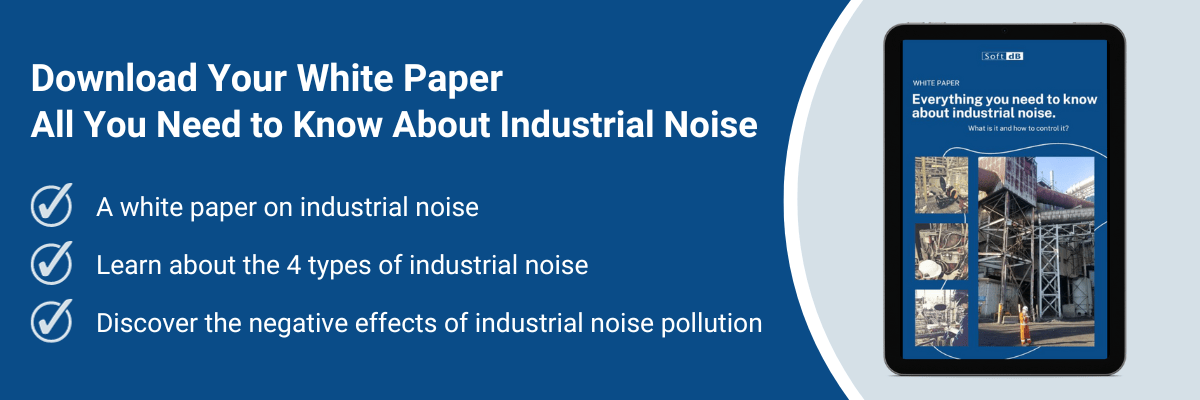
Conclusion: Industrial Soundproofing in the Metallurgical Industry
Industrial soundproofing plays a crucial role in reducing noise pollution in the metallurgical industry.
By implementing effective soundproofing measures, companies can create a safer and more comfortable working environment for employees while minimizing impacts on the environment and nearby communities. It is crucial to understand the sources of noise in the metallurgical industry and to implement appropriate soundproofing solutions to reduce noise levels.
Moreover, noise control regulations and standards must be followed to ensure effective noise pollution reduction. Overall, the future of industrial soundproofing in the metallurgical industry is promising, as more and more companies recognize the importance of reducing noise and creating safer and healthier working environments.
Managing Industrial Noise in the Metallurgical Industry
Enhance Productivity in the Metallurgical Industry by Managing Industrial Noise. Effective Soundproofing Solutions for a Quieter and More Efficient Work Environment.
Contact Our Industrial Soundproofing Experts